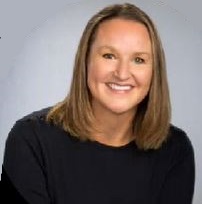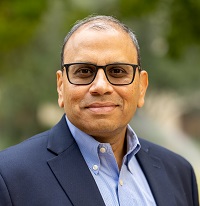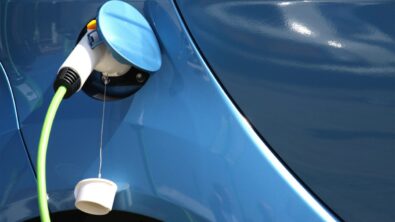Sustainability of energy and resource efficiency – Transcript


Below is our final conversation with Eryn Devola, Head of Sustainability at Siemens Digital Industries Software, and Rahul Garg, VP Industrial Machinery and SMB Business Program at Siemens Digital Industries Software, discussing the impact of sustainability on the industrial machinery industry in part 5 of our podcast series, explaining how to obtain the eventual goal of sustainability – zero waste.
Check out the podcast here, or read the full transcript.

Read the transcript
Blake intro: Hello and welcome back to the fifth episode of the Sustainability podcast series and the third part of our Industrial Machinery conversation with Rahul Garg, VP of Industrial Machinery at Siemens Digital Industries Software and Eryn Devola, Head of Sustainability at Siemens. In our last episode we left off with Eryn discussing how to optimize for sustainability to ensure that peak machine performance is sustainable. Let’s pick back up with Rahul’s response.
Rahul: You know, Eryn, since we have been talking so much about the overall challenge in this whole scope, I wonder if there are some thoughts you could share on how someone can start on this sustainability journey.
Eryn: Yeah, there is a great quote out there, and I’m sure I’ll misquote it but it talks about how a sustainable society doesn’t require a few people doing it perfectly, but It requires everyone doing it imperfectly, and I think the most important thing that entities can do is to start it and get going.
I think the other thing to always consider is you don’t need to hire four people who are good sustainability experts. But you need to infuse sustainability and environmental protection considerations into almost every role in your organization.
You need people who are experts on metals or polymers to be able to look at that and understand the impacts. So, you don’t need to have designers who understand how to balance water usage, but they need to be able to understand production.
So, how do I minimize standby energy usage? Take that core technical skill set or those business-focused skill sets we all have and apply sustainability principles and considerations. Make sure that it is part of your decision-making that impacts the environment, whether in CO2, water usage, or toxic substance and microplastics.
And I know it’s a lot, but it takes a lot. It’s going to take everybody doing their part to make and move that needle. And, again, it’s getting much more attention from governments and companies, that were really moving in that direction with some momentum that we didn’t have a few years ago.
Rahul: Yes, I think what you’re saying is that there is a way to get started. And there’s a lot that can be done, but you need to make some initial steps. So Blake, do you have any thoughts on what we should be trying to cover on next, based on that?
Blake: Yes, so as we’re forecasting the impact of sustainability, how do you see sustainability playing an ongoing role in the future of industrial machinery?
Rahul: Yeah, you know when you look at the eventual goal of sustainability, it’s zero waste. So, that’s zero downtime, zero harm and I would say at least zero impact on the planet with low cost clean renewable energy use – these are overall the big picture goals that many companies are driving towards and decarbonization, energy efficiency, resource efficiency, and circularity.
All of these are going to become significant competitive advantages for companies and the ability to have that incorporated into your business. This is not only going to make it a big value proposition for your business and your sales to your end customers, but it’s also going to have a a profitable view inside your own operations and eventually make you into a more sustainable business as well.
So, eliminating or addressing these issues is not eventually for the whole lofty good cause, but it’s for your own successful future. I really do think it provides a holistic view to look into new business models and new markets.
I think as you are growing your company and looking at what you’re going to do in the next generation of students and new employees, they’re going to be looking to work with companies that have a focus on environmental impacts and sustainability because it’s an important element that they have grown up with and they see the impact it can have for their own future.
Rahul: So, when we are thinking of 5000 years from now, we must start thinking about the impact today to make long-term decisions in this whole process.
Eryn: You know, as I look to the future, I think of a couple things. I think there are those that will look at sustainability as an obligation and those who will look at it as an opportunity. I think those that look at it as an opportunity are going to be faster, more agile, and more creative on how they approach these complex and multifaceted problems.
And I believe they’re going to come out much more successful in the long term by adapting their business models, by rethinking how they do things. By having digitalization as this key enabler, it really gives you that ability to think bigger, to think broader, a little bit more off the wall and take those best, maybe less intuitive ideas and pull them forward. And that’s where I think technology can really leverage the opportunity of sustainability and help you comply with the application at the same time.
Rahul: The point right now is: the future is green, to put it simply.
Blake: So, do either of you see a day when students will go to college, and they’ll actually get a bachelor’s degree in sustainability in a particular industry or field?
Rahul: I think so.
Eryn: So, at Siemens we’re working with the university right now. And in developing a circular economy focused certificate program, we had a conversation about this just yesterday where we talked about sustainability as a skill set or as a topic. And I really think that we’ll see it as a part of every curriculum moving forward that is going to be in MBA programs, taking a sustainable development class in your mechanical engineering program.
You’re going to take a course that really helps you get oriented to sustainable materials. I really do see this topic being integrated much more broadly than having a few expert programs where every company has one expert who could talk to sustainability. It really needs to become not a bolt on, but core to what you’re doing to be successful, because it’s so big. It does require a systems level approach and systems level thinking, and that system is no longer inside your two gates.
It extends to the whole value chain of the product and in the whole ecosystem of what you’re operating.
Rahul: It’s a good point you’re making there. And because earlier in the conversation you had said that you don’t need three sustainability experts in your company. You need everyone inside your organization to be thinking about this, all the way from the person who’s designing a part to the person who’s manufacturing something to the purchasing officer.
So, all of them must be thinking about this. I guess all who studied for this expertise in their curriculum and bachelor’s degrees, they will all need to add an element or a factor of sustainability.
Eryn: I mean, that’s the way that I see it and maybe it’s because I grew up in quality and you can’t just hire two quality engineers and expect that you’re going to have a quality product at the end.
You must build a quality culture. You must put quality into every process that you have. You must have good quality going out to your customer. You must have a good quality order that you book.
You must have quality in your specification or in your requirements document, in your execution you must have quality elements all the way through, and I think the exact same way about sustainability.
It must be something that you’re integrating into the heart of your organization, into your culture and driving it through to every one of your organizational processes to ultimately be successful.
Rahul: Quality is sustainable.
Blake: Right, it really touches on all areas of sustainability. Thanks to you both for those excellent points about implementing sustainability into every aspect of a company with the resulting benefits. Also, I appreciate both of you forecasting the future of sustainability, which like quality, needs to be a part of everything. Unfortunately, we are rounding out this episode, but I want to again thank Eryn Devola, Head of Sustainability at Siemens and Rahul Garg, VP of industrial machinery at Siemens for their input into this series. Please stay tuned for more sustainability topics and its effect on other industries. Thank you and bye for now.
Siemens Digital Industries Software helps organizations of all sizes digitally transform using software, hardware and services from the Siemens Xcelerator business platform. Siemens’ software and the comprehensive digital twin enable companies to optimize their design, engineering and manufacturing processes to turn today’s ideas into the sustainable products of the future. From chips to entire systems, from product to process, across all industries. Siemens Digital Industries Software – Accelerating transformation.


